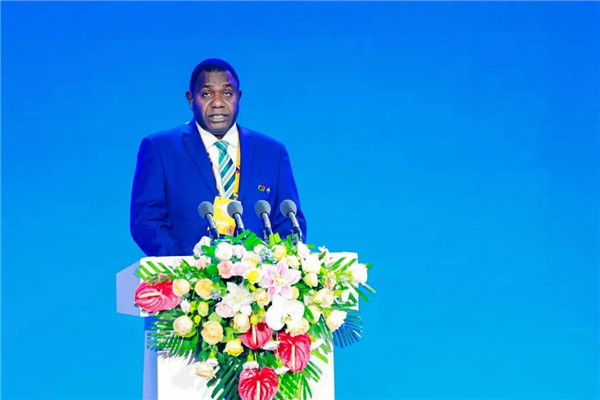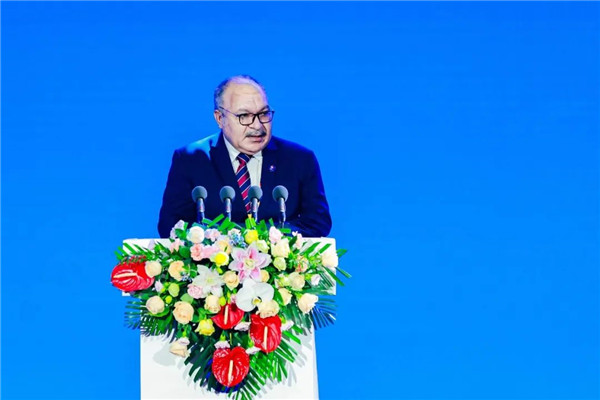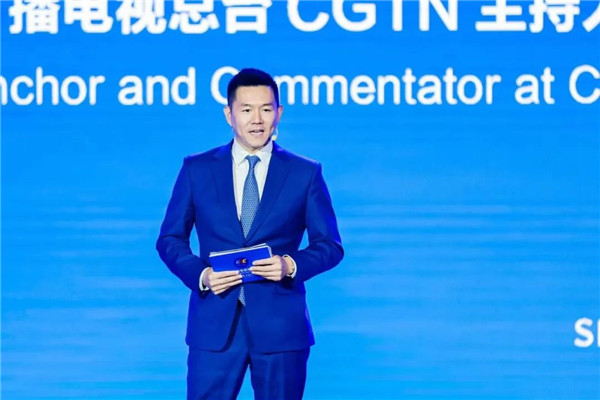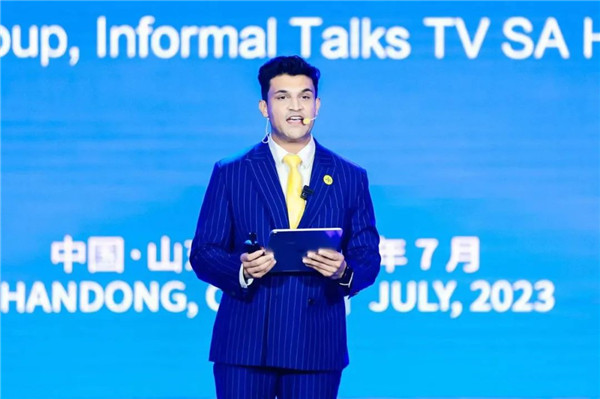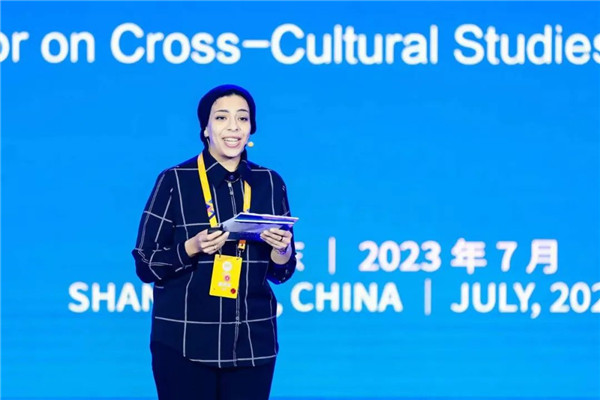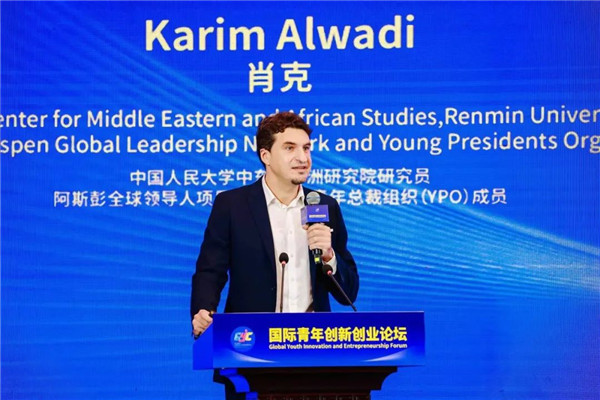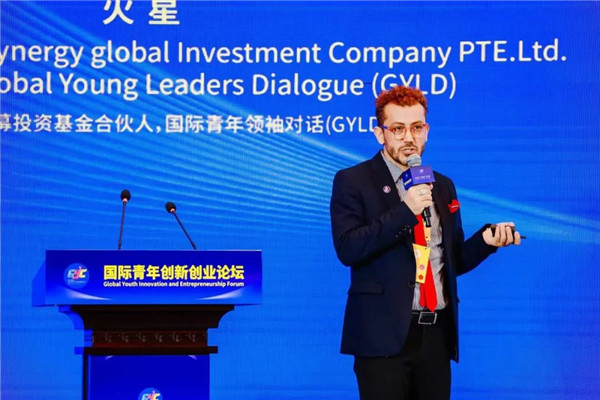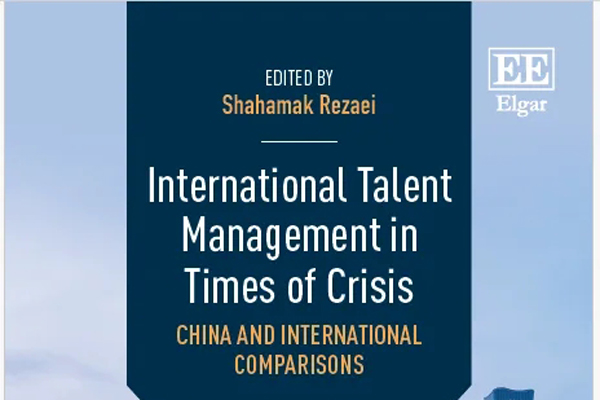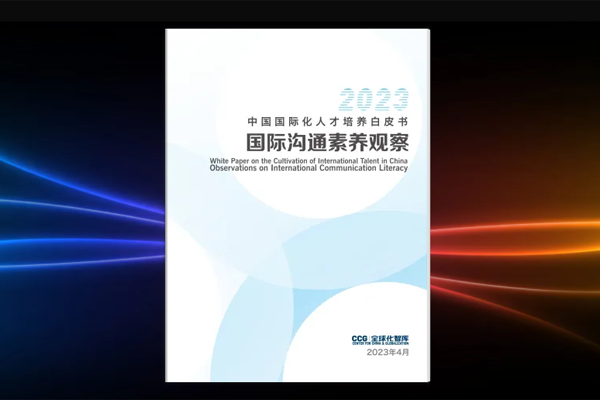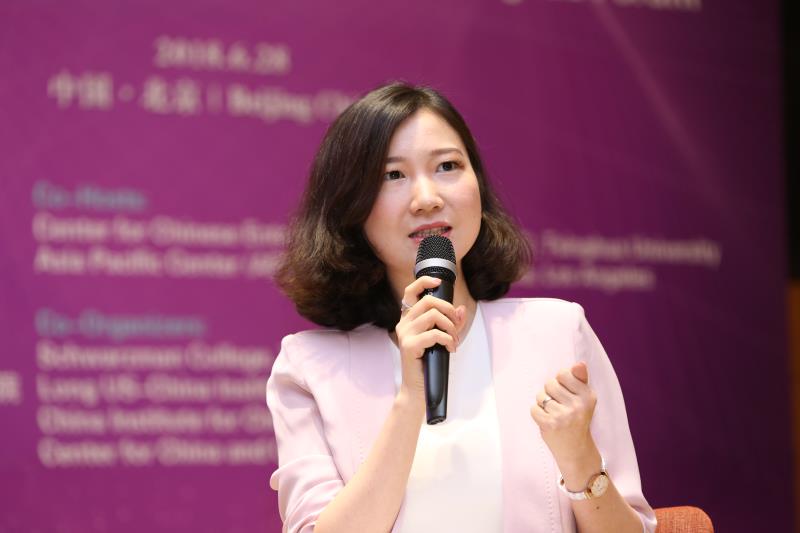2023 Global Youth Conference Press Release
July 07 , 2023The Global Youth Conference opened in Shandong, with CCG’s collaboration in hosting the opening ceremony, main forum, and releasing reports.
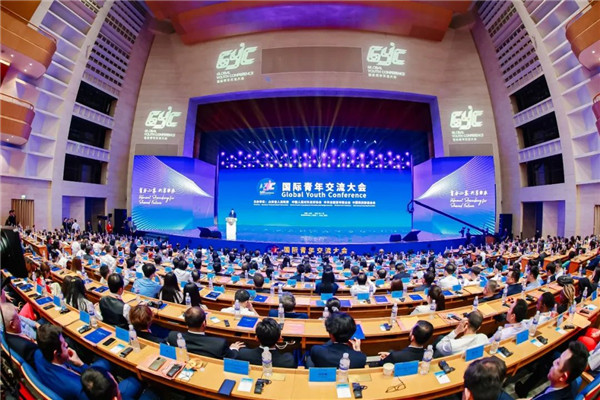
On the morning of July 7th, the opening ceremony of the 2023 Global Youth Conference was held at Shandong Hall. More than 1,000 guests and youth representatives from over 85 countries and regions gathered together on the land of Shandong, embarking on a shared journey of youth.
This conference is jointly organized by the Shandong Provincial People’s Government, Chinese People’s Association for Friendship with Foreign Countries, All-China Youth Federation and China Soong Ching Ling Foundation. With the annual theme “New Era, New Civilization, New Youth, New Mission”, the conference includes various activities such as the opening ceremony, main forum, parallel forums, youth-themed exhibitions, international youth gala, and exchange visits.
As the supporting organization, the Center for China and Globalization (CCG) hosted the Huanghewan Global Youth Economic Forum and released relevant research reports. Several guests were also invited to deliver speeches during the opening ceremony and the Global Youth Innovation and Entrepreneurship Forum.
The opening ceremony featured the release of research reports, and international young talents were invited to share their insights and experiences.
Yang Zhen, Vice Chairman of the 14th National Committee of the Chinese People’s Political Consultative Conference, attended the event and delivered a speech. Hon. Seoule Simeon, Speaker of Parliament of the Republic of Vanuatu, and Peter O’Neill, former Prime Minister of Papua New Guinea, Lin Wu, Secretary of the CPC Shandong Provincial Committee, also addressed the opening ceremony. Ge Huijun, Chairman of the Shandong Provincial Committee of the Chinese People’s Political Consultative Conference, along with Yang Dongqi, Deputy Director of the Shandong Provincial People’s Congress Standing Committee and Secretary of the CPC Leadership Group, were also present.
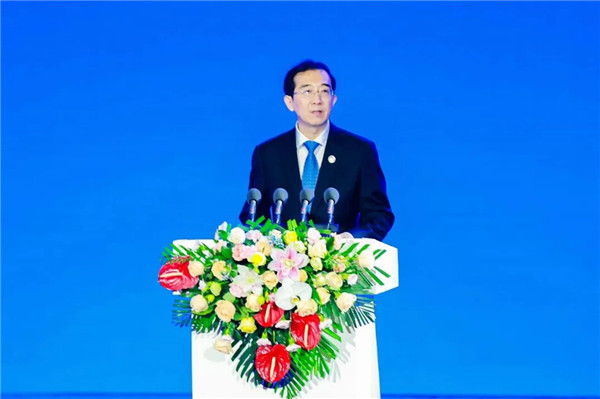
Yang Zhen quoted President Xi Jinping in his speech stating, “We hope that young professionals at home and abroad can enhance mutual understanding, cultivate friendship, and grow together through mutual learning and exchange, contributing their youthful strength to the building of a community with a shared future for mankind.” By organizing the Global Youth Conference, international young professionals can learn from each other, exchange ideas, and engage in cooperation within a multilateral framework. They can serve as the driving force in promoting the common values of all mankind, and work towards creating a brighter and more prosperous world for the future.
Hon. Seoule Simeon and Peter O’Neill, in their speeches, emphasized that young professionals are full of vitality and represent the future of their nations and the hope of their people. Young professionals present at the Global Youth Conference come from different countries, industries, and fields. This conference serves as a platform for the youth to sow the seeds of hope. They can bravely shoulder their historical mission, walk alongside the era and truth, unite and collaborate, and, with a determined attitude, strive with their youthful energy to build a better world.
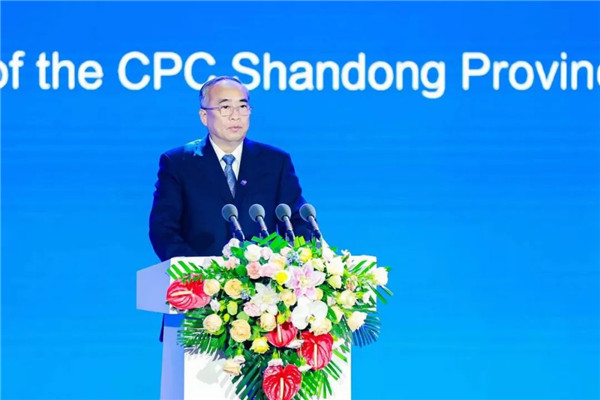
Lin Wu stated in his speech that the youth are an important force driving progress and carrying the mission of the era. In recent years, Shandong has been deeply implementing President Xi Jinping’s important instructions, vigorously promoting the development of youth affairs, and striving to enable young people to shine with youthful vitality and charm in the tide of development. The purpose of organizing this conference is to support global development for young people worldwide, continuously build platforms for global youth development, facilitating exchange and sharing of wisdom. We are willing to work together with young professionals to shoulder the mission bestowed by the era, explore as well as innovate, promote development, engage in cultural exchanges, and foster unity and cooperation, thereby contributing to the construction of a community with a shared future for mankind. Shandong will spare no effort to cultivate fertile ground for development, allowing young professionals to unleash their youthful passion and pursue their dreams on the land of Qilu.
Xu Xiao, Secretary of the Secretariat of the Central Committee of the Communist Youth League and Vice President of the All-China Youth Federation, Shen Beili, Party Secretary and Vice President of China Soong Ching Ling Foundation, Siyabonga Cyprian Cwele, South African ambassador to China, Li Xikui, Vice President of the Chinese People’s Association for Friendship with Foreign Countries, and Wang Yaping, Vice President of the All-China Youth Federation and Senior Astronaut of the Chinese Astronaut Brigade, delivered speeches.
During the opening ceremony, ten achievements in international youth exchanges and outstanding projects from the International Youth Innovation and Entrepreneurship Competition were released. The establishment of two international organizations namely, the Global Youth Conference and the World Youth Entrepreneurship Innovation and Entrepreneurship Alliance were announced. In addition, the study entitled “The Report on the Development of Chinese Youth in New Professions under the New Employment Patterns”, jointly researched and written by the Center for China and Globalization (CCG) and Tencent Youth Development Committee, was also released during the opening ceremony.
During the keynote speech session of the conference, Wang Guan, Anchor at CGTN, along with Brett Lyndall Singh from South Africa and Mehad Mousa from Egypt, were invited by CCG to share their inspiring stories of personal growth and development, aiming to motivate young people from various countries to pursue their dreams and achieve their aspirations.
The main forum invited experts from various fields and young talents to engage in in-depth discussions.
Following the opening ceremony, the Huanghewan Global Youth Economic Forum, jointly organized by the Center for China and Globalization (CCG) and the Foreign Affairs Office of Shandong Provincial People’s Government, was successfully held. This forum was first established and held in 2022 with the aim of creating an international economic forum with Chinese characteristics, a global perspective, as well as youth leadership, and cultivating a Chinese version of the World Economic Forum for young professionals.
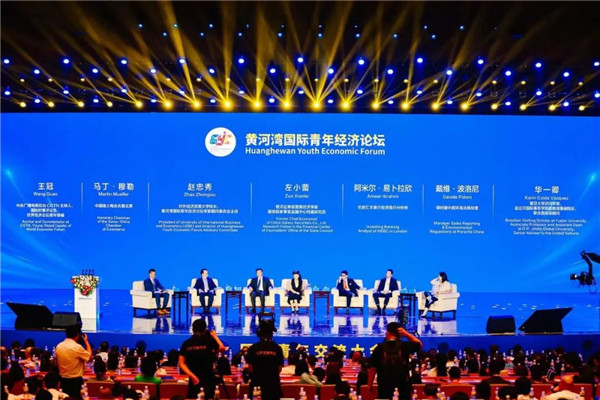
The theme of this forum is “New Industrialization Amidst Reconstruction of Global Value Chain.” It aims to understand the current trends in the reconstruction of global value chains, grasp new opportunities brought by the new round of technological revolution and industrial transformation, and explore how to further promote new industrialization. Discussions were focused on how to build a more equitable, inclusive, green, and constructive global value chain through new platforms such as RCEP and CPTPP.
The Forum invited three distinguished guests in the field of economy and trade: Martin Mueller, Honorary Chairman of the Swiss-China Chamber of Commerce; Zhao Zhongxiu, President of University of International Business and Economics (UIBE) and director of Huanghewan Global Youth Economic Forum Advisory Committee and Zuo Xiaolei, Former Chief Economist of China Galaxy Securities Co., Ltd. and Research Fellow in the Financial Center of Counsellors’ Office of the State Council. Additionally, three international young talents from different fields participated in the discussions: Ameer Ibrahim, Investing Banking Analyst at HSBC in London; Davide Poloni, Manager in Sales Operations of Porsche (China) Motors Ltd; Karin Costa Vazquez, Brazilian visiting scholar at Fudan University, expert in sustainable development and development finance. The Forum was hosted by Wang Guan, Anchor and Commentator at CGTN, Young Global Leader of World Economic Forum.
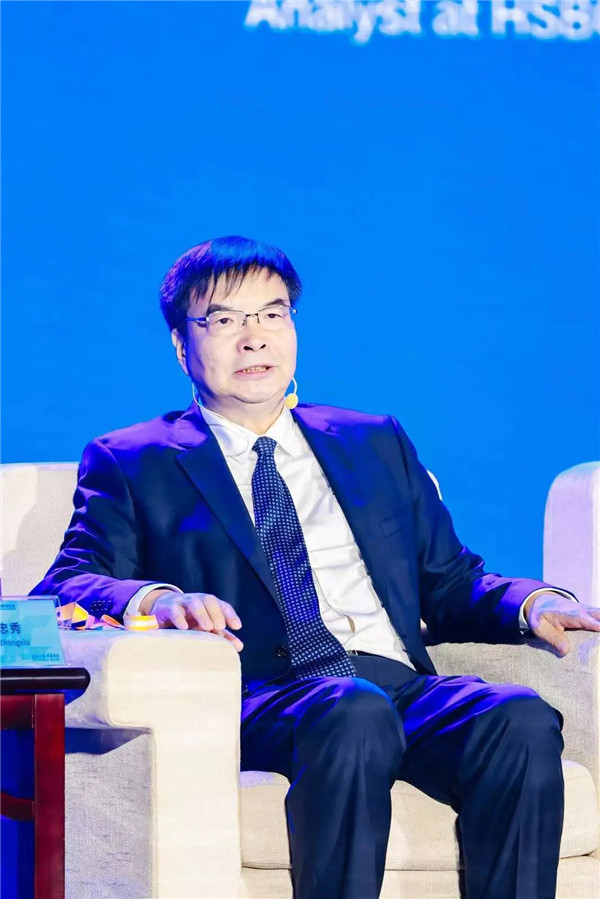
Zhao Zhongxiu pointed out several new characteristics of the current global value chain reconstruction: 1) The issue of global value chain security is becoming increasingly prominent; 2) The spatial layout is undergoing significant changes, with a trend towards regionalization and localization horizontally, and a trend towards shorter chains vertically; 3) The competitive advantage of enterprises in the global value chain is gradually shifting from “tangible” manufacturing to “intangible” assets; 4) Building a low-carbon, green, inclusive, and sustainable global value chain will become a new direction for the development of the global value chain.

Martin Mueller provided insights from the perspective of the supply chain and discussed the changes in factors considered by multinational corporations in supply chain layout under the context of global value chain reconstruction. He mentioned that traditional supply chains mainly focused on three aspects: service, quality, and cost. However, in the current and future supply chains, three new priority factors are emerging which are resilience, flexibility, and stability.
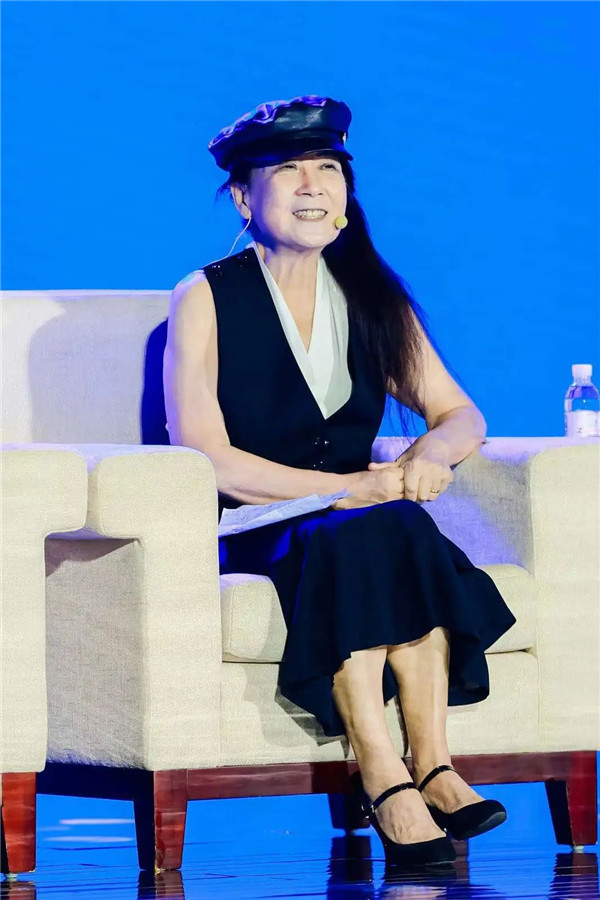
Zuo Xiaolei pointed out that the global value chain has experienced disruptions in certain value creation stages due to geopolitical and other human factors, as well as technological factors such as artificial intelligence. Addressing these disruptions requires international cooperation and collective reconstruction efforts. Capital is an essential resource for value chain reconstruction, and therefore, promoting financial openness is crucial. However, such openness should be targeted to ensure that financial resources accurately enter the real economy and important value creation stages, rather than focusing on virtual price manipulation. This approach helps mitigate financial risks.
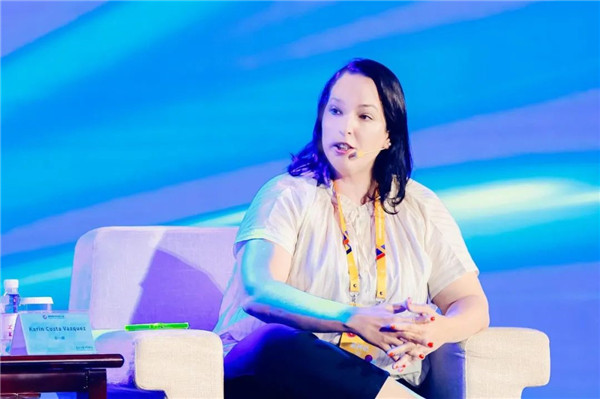
Karin Costa Vazquez stated that the reconstruction of global value chain has brought competition but also opportunities for win-win cooperation among developing countries. Using China and her home country Brazil as examples, she highlighted numerous collaboration opportunities between two nations in sustainable development and high-quality development, which can contribute to achieving new industrialization. She also emphasized the role of non-governmental sectors, such as think tanks, in providing intellectual support to address the challenges of global value chain reconstruction. Additionally, she discussed the significant role of initiatives such as the Belt and Road Initiative and the Global Development Initiative in the reconstruction of the global value chain ecosystem.
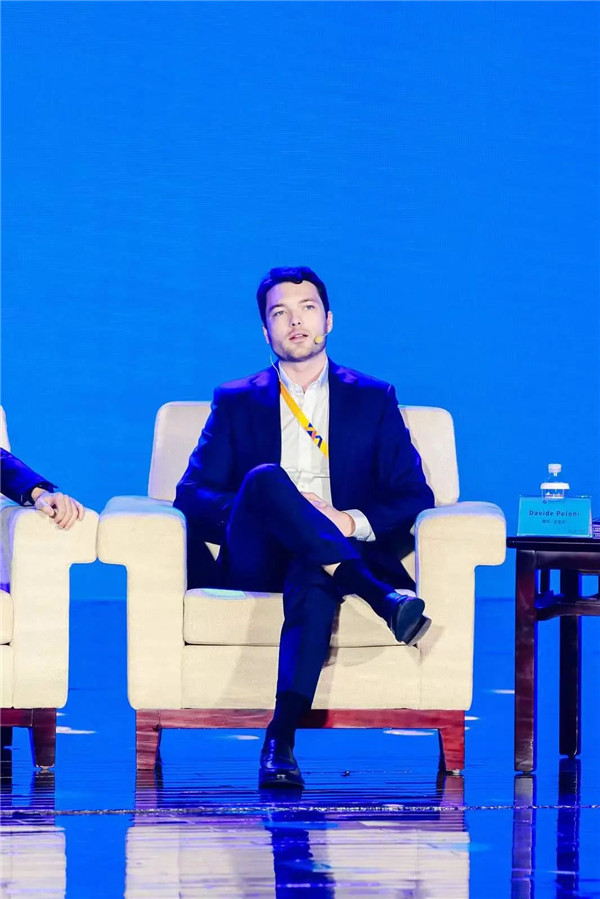
Davide Poloni analyzed the trends in the global value chain using the automotive industry as an example. He noted that due to factors such as the COVID-19 pandemic, the automotive industry is now focused on localized production, research and development, and data storage, in order to be closer to the market. This approach enhances the resilience of the entire value chain and accelerates the pace of innovation. Furthermore, he highlighted the potential for greener production in traditional combustion vehicles and the importance of battery recycling in the case of electric vehicles.
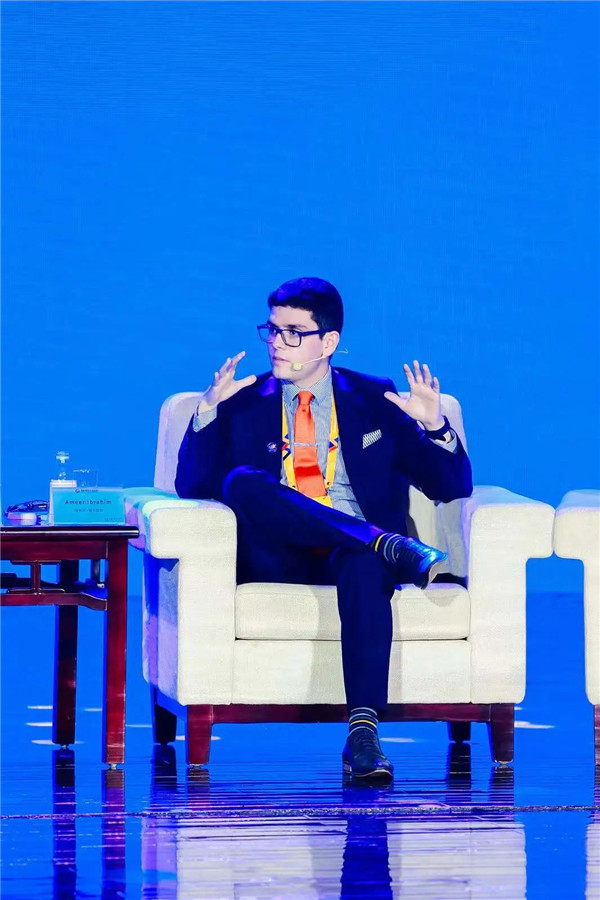
Ameer Ibrahim also paid close attention to the automotive industry, particularly the development of electric vehicles. He believed that in the face of global value chain reconstruction, innovation remains crucial, and cross-border exchanges and collaborations can be facilitated through the mobility of young people.
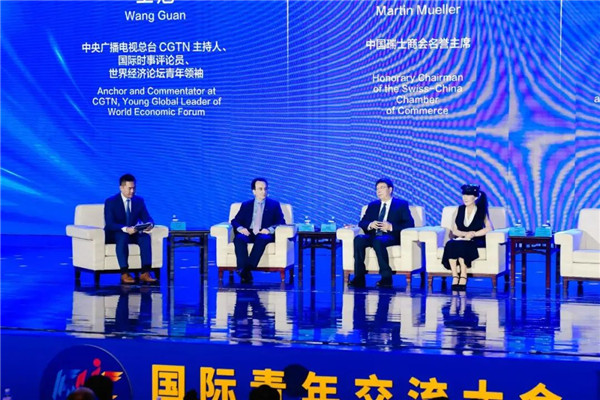
Wang Guan expressed his view that discussions on the reconstruction of global value chain are crucial for the future of the global economy. The current geopolitical landscape and technological advancements have had significant impacts on value chains and supply chains. As young individuals, it is important to maintain an open mindset and strengthen exchanges and collaborations. Shandong, as a province with a prominent economic size in China, can seize opportunities and achieve new breakthroughs based on its strong industrial economic foundation.
Furthermore, the guests also discussed how to better engage in the reconstruction of the global value chain through regional trade agreements such as RCEP and CPTPP. They also explored the opportunities and challenges for youth employment and entrepreneurship in the context of artificial intelligence development.
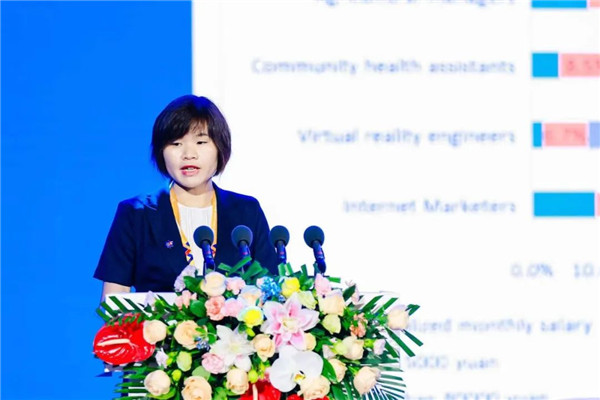
During the forum, Zheng Jinlian, Vice-president of the Center for China and Globalization(CCG) and Director of research department, provided an interpretation of “The Report on the Development of Chinese Youth in New Professions under the New Employment Patterns”. The report highlights that the rapid development of the digital economy, digital transformation has led to the emergence of new business forms, new demands. From 2021 to 2025, there will be a shortage of nearly 120 million talents in 20 new professions, such as Internet marketers, corporate compliance officers, artificial intelligence engineers and technical professionals, etc. The report also proposes eight policy recommendations, including “Establishing a comprehensive employment service mechanism for the Youth in New Professions and emphasize continuous employment guidance and services”, in order to facilitate the better development of young professionals in emerging industries.
The parallel forum invited international youths to share their stories and insights on innovation and entrepreneurship.
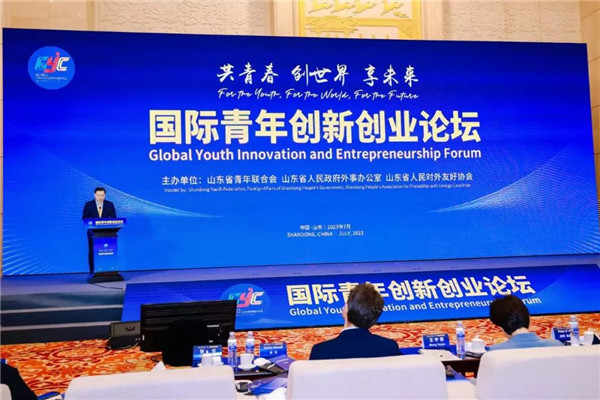
At the parallel forum of the Global Youth Innovation and Entrepreneurship Forum, co-hosted by the Shandong Youth Federation, Foreign Affairs Office of Shandong Provincial People’s Government and Shandong Provincial People’s Association for Friendship with Foreign Countries, the Center for China and Globalization (CCG) invited three international young professionals to deliver speeches. This forum focused on the topic of innovation and entrepreneurship, which is of common concern to young people worldwide. It provided a platform for participants to engage in exchanges, discussions, and mutual learning, aiming to inspire more young talents to participate in discussions and practical cooperation related to innovation and entrepreneurship, and to harness the power of youth for high-quality development.
Wang Yuyan, Member of the Standing Committee of the CPC Shandong Provincial Committee, Director of the Organization Department of the CPC Shandong Provincial Committee; Zhang Hua, Party Secretary and Director of China International Youth Exchange Center and David Morris, Vice President of the ESCAP Sustainable Business Network (ESBN), delivered speeches. Peter O’Neill, former Prime Minister of Papua New Guinea, and Xu Xiao, Secretary of the Secretariat of the Central Committee of the Communist Youth League and Vice President of the All-China Youth Federation, attended the forum, with Yin Shiyi, Secretary of Shandong Provincial Committee of the Communist Youth League of China, presiding over the event.
In the first keynote speech session, the Center for China and Globalization (CCG) invited Dr. Karim Alwadi, Researcher of Center for Middle Eastern and African Studies, Renmin University of China, Member of Aspen Global Leadership Network and Young Presidents Organization (YPO), as well as Alireza (Mars) Pouyanmehr, Managing Partner of CynergyGlobal Investment Fund and Member of GYLD, to share their experiences and stories of innovation and entrepreneurship in China. They provided insights and guidance for international youths in the field of innovation and entrepreneurship, inspiring their dreams of growth and success.
In the second phase of the forum, the matchmaking meeting for innovation and entrepreneurship projects was held. The Department of Human Resources and Social Security of Shandong Province introduced the policy environment of youth innovation and entrepreneurship in Shandong. Key cities such as Jinan, Qingdao, Yantai and other cities promote international innovation and entrepreneurship parks. Twenty-two key innovation and entrepreneurship parks in the province set up dedicated matchmaking areas on-site, where domestic and foreign guests engaged in in-depth discussions and negotiations with park representatives.
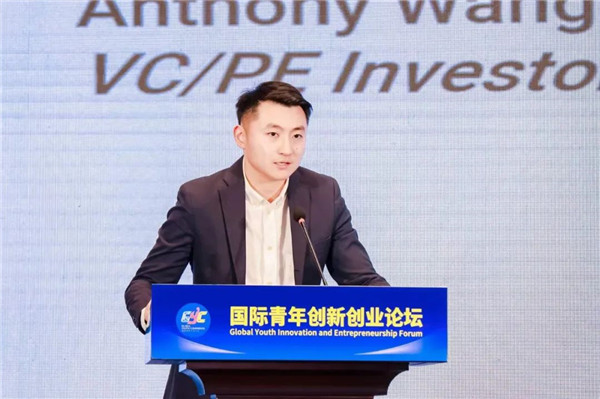
CCG invited Anthony Wang, Tsinghua University Schwarzman scholar, former investment banking analyst at J.P. Morgan, and venture capital investor, to share insights on the investment landscape in the Chinese market and how private investors can navigate risks and challenges in the future.
Young talents are not only the future of a nation but also the future of the world. With the 2023 Global Youth Conference as a catalyst, it is a great opportunity to raise the banner of the era, promote cultural exchanges, foster cooperation, and jointly create a bright future for the youth of today.
